Abstract
Three preschool children participated in a behavioral training program to improve their gross-motor skills. Ten target behaviors were measured in the training setting to assess direct effects of the program. Generalization probes for two gross-motor behaviors, one fine-motor skill, and two social behaviors were conducted in other settings. Results indicated that the training program improved the gross-motor skills trained and that improvements sometimes generalized to other settings. Contrary to suggestions in educational literature, the gross-motor training program did not produce changes in fine-motor skills or social behaviors. Implications for educators and for the development of the technology of generalization are outlined.
Full text
PDF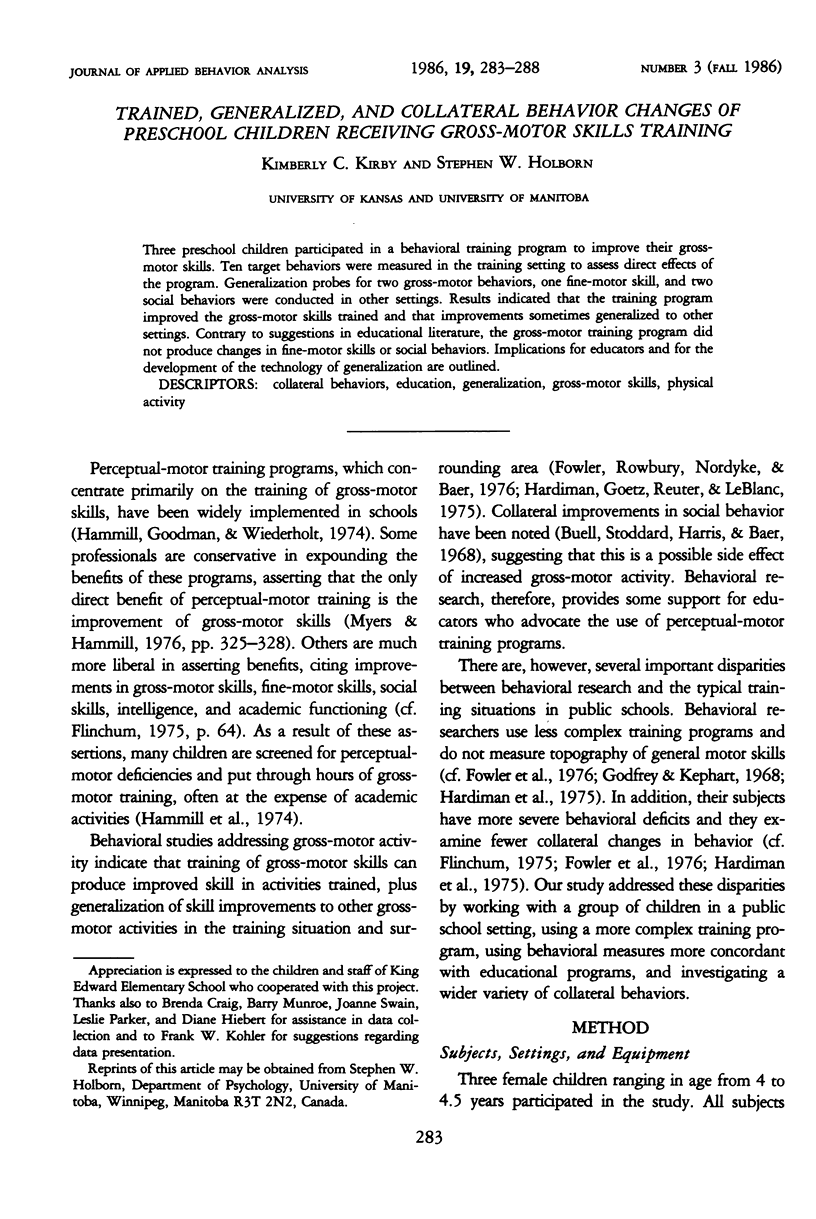
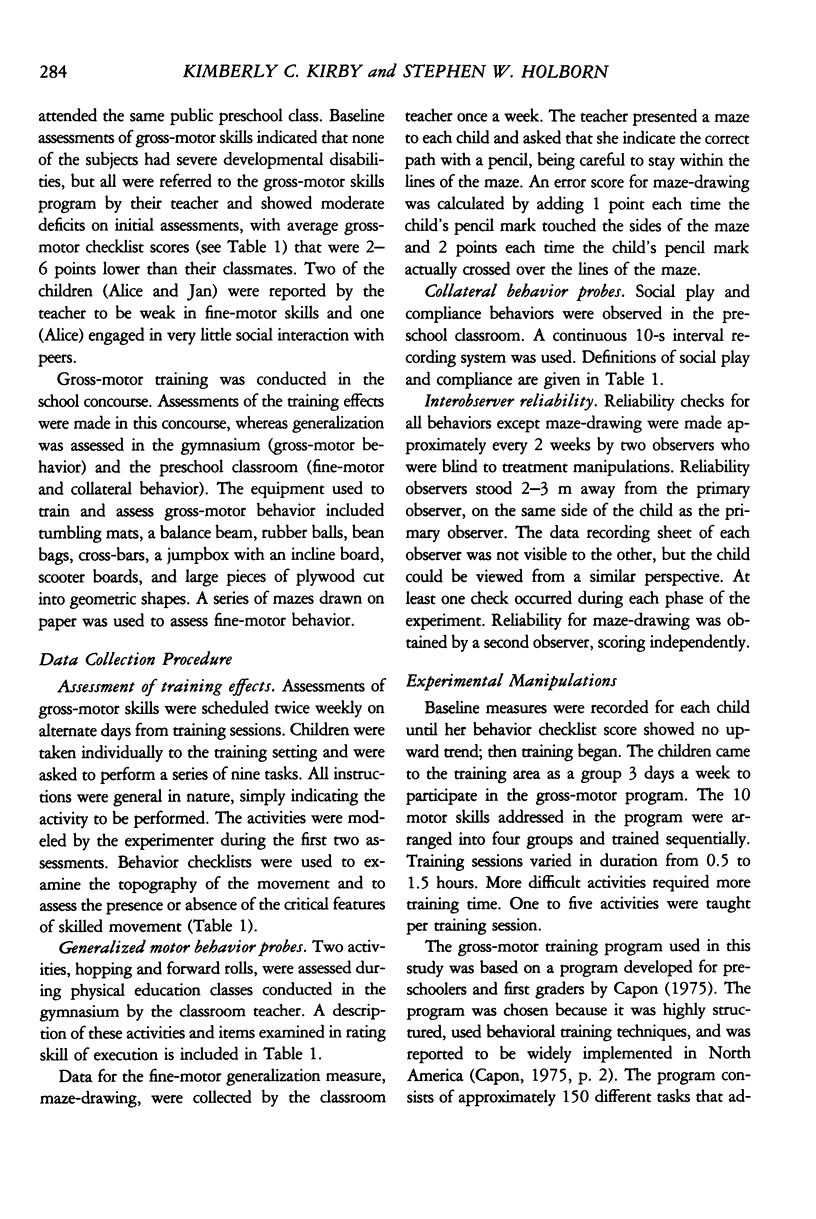
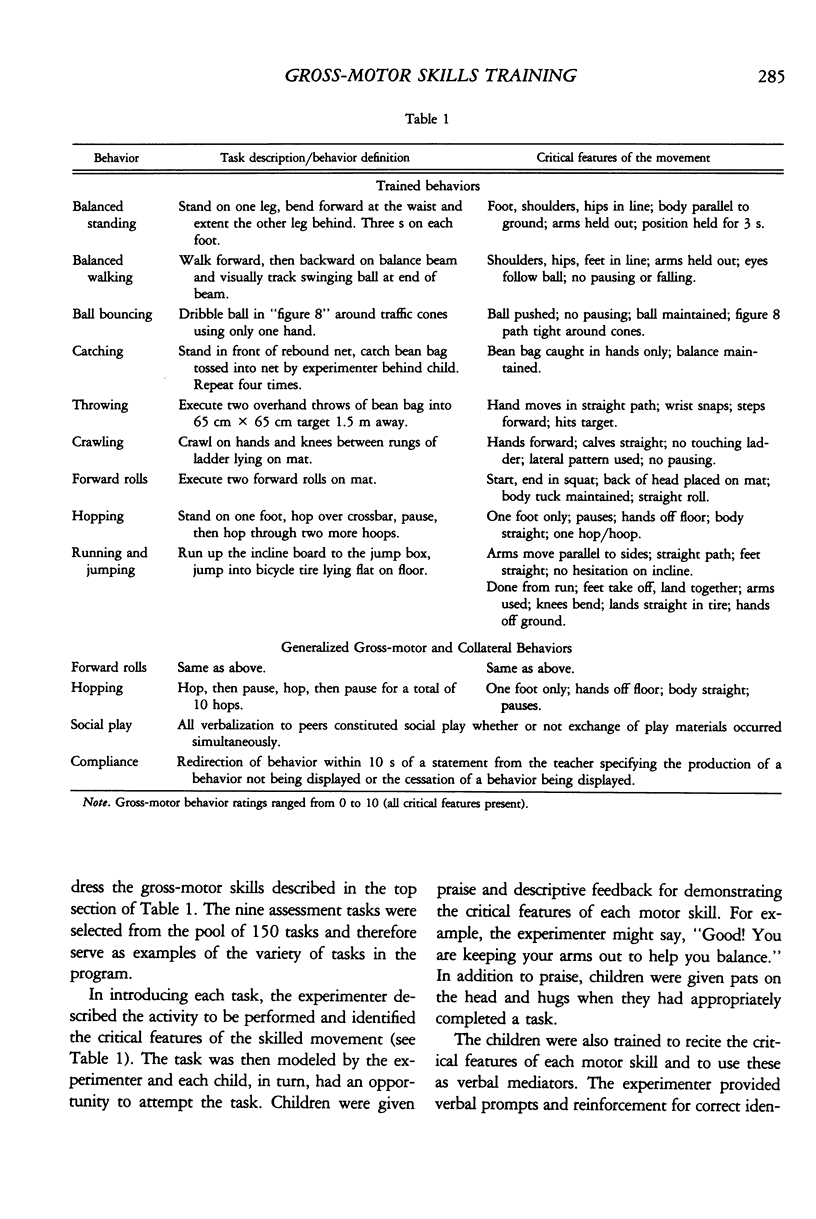
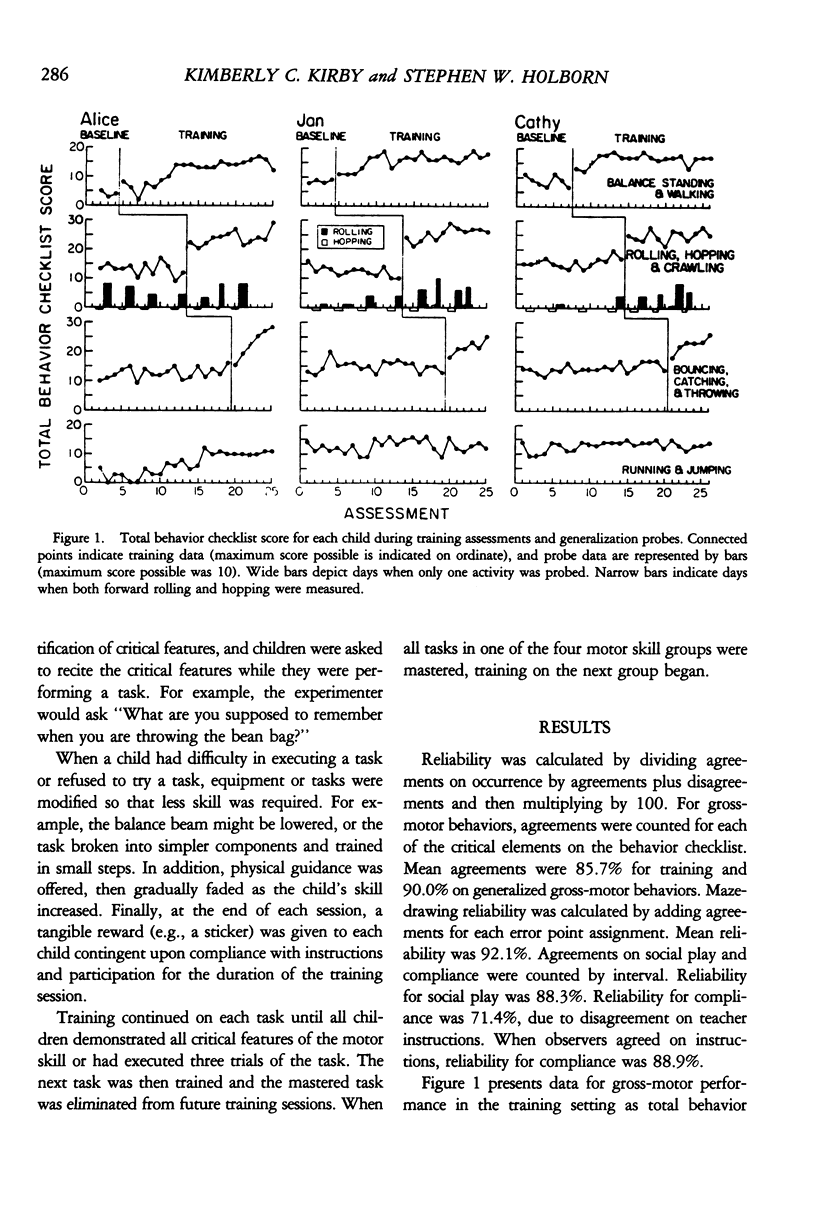
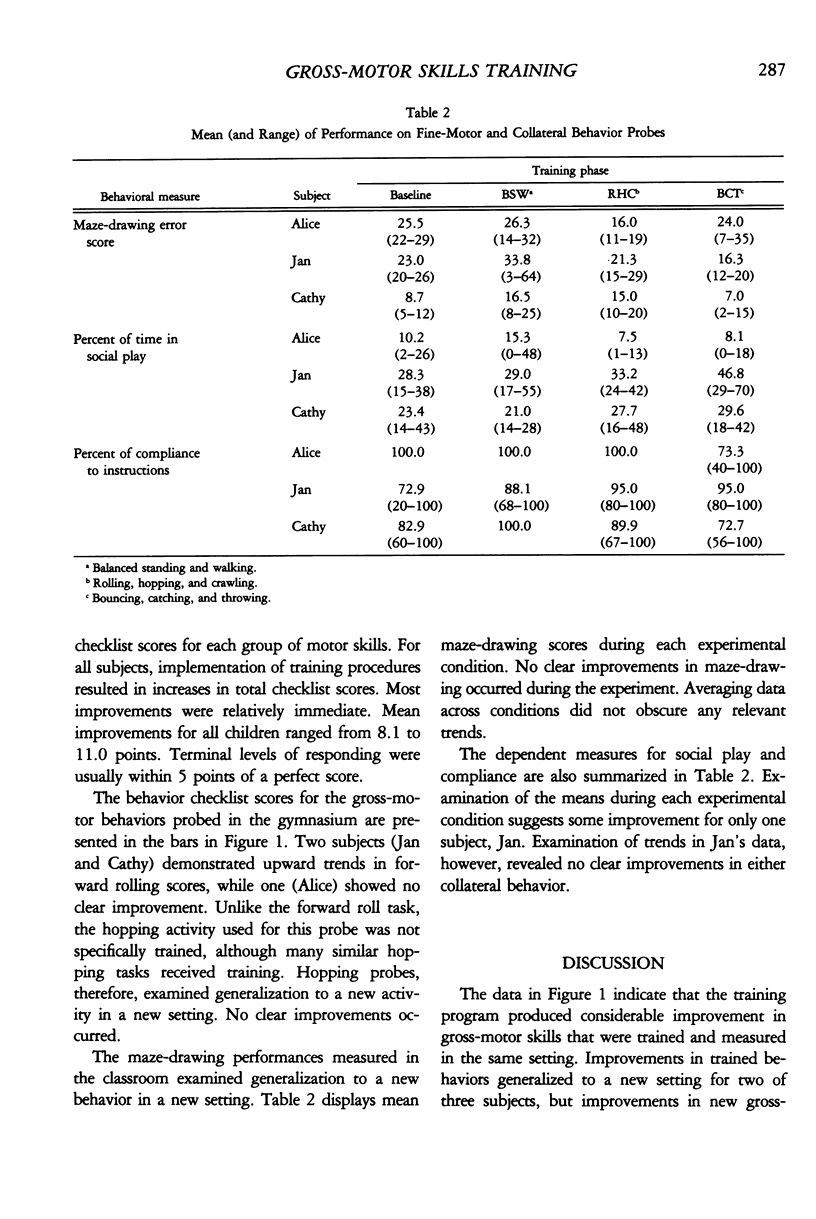
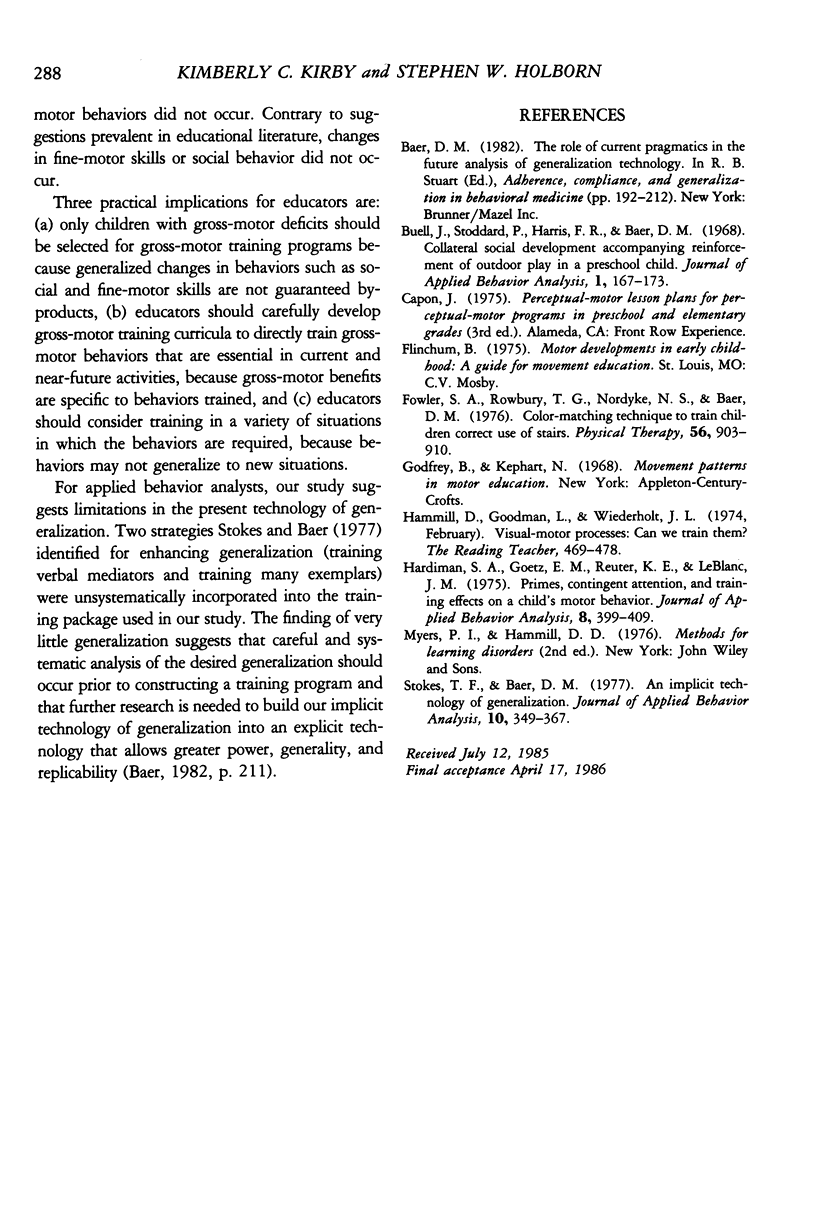
Selected References
These references are in PubMed. This may not be the complete list of references from this article.
- Buell J. Collateral social development accompanying reinforcement of outdoor play in a preschool child. J Appl Behav Anal. 1968 Summer;1(2):167–173. doi: 10.1901/jaba.1968.1-167. [DOI] [PMC free article] [PubMed] [Google Scholar]
- Fowler S. A., Rowbury T. G., Nordyke N. S., Baer D. M. Color-matching technique to train children in the correct use of stairs. Phys Ther. 1976 Aug;56(8):903–910. doi: 10.1093/ptj/56.8.903. [DOI] [PubMed] [Google Scholar]
- Hardiman S. A., Goetz E. M., Reuter K. E., Leblanc J. M. Primes, contingent attention, and training: effects on a child's motor behavior. J Appl Behav Anal. 1975 Winter;8(4):399–409. doi: 10.1901/jaba.1975.8-399. [DOI] [PMC free article] [PubMed] [Google Scholar]
- Stokes T. F., Baer D. M. An implicit technology of generalization. J Appl Behav Anal. 1977 Summer;10(2):349–367. doi: 10.1901/jaba.1977.10-349. [DOI] [PMC free article] [PubMed] [Google Scholar]


